World record: Held his breath for nearly 30 minutes
"It felt almost like being poisoned," says the record holder.
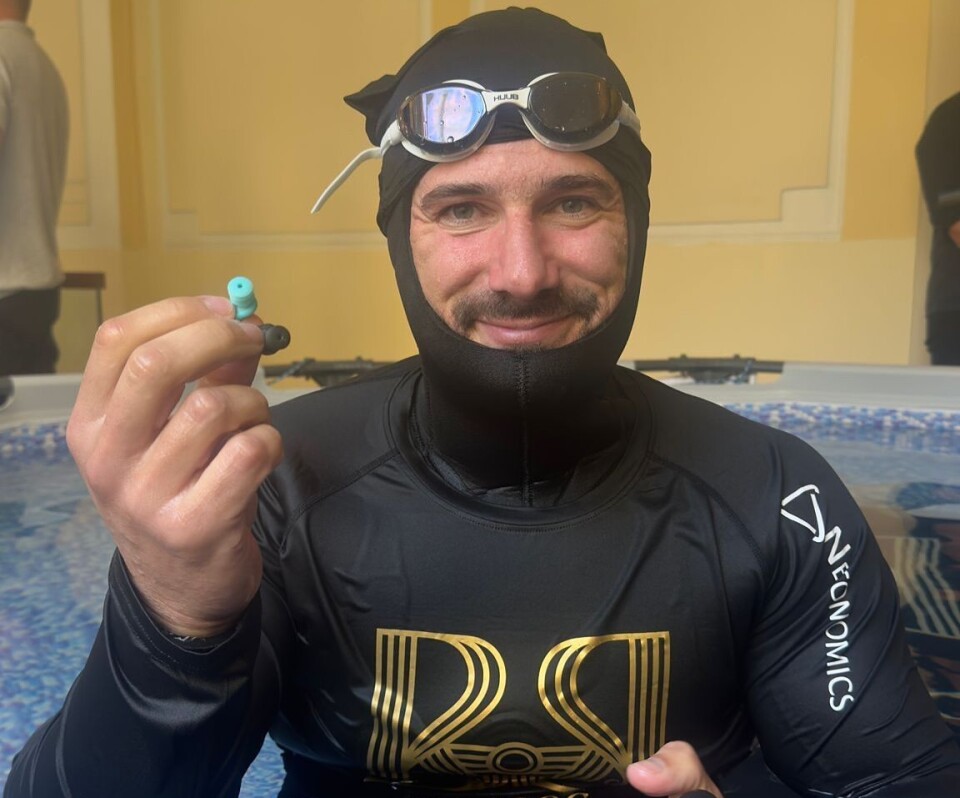
Vitomir Maričić is one of the world's best freedivers.
And this summer he set a new world record:
He held his breath for 29 minutes and 3 seconds.
"I wanted to give up many times," Maričić tells Science Norway.
Here you can see Vitomir Maričić set the record.
Easier after 20 minutes
Maričić kept pushing himself by repeating: 'just ten more seconds.'
"Then I pushed myself again, little by little. After 20 minutes it suddenly became easier," he says.
That gave him the confidence he needed to believe he could break the world record.
The dive was done underwater in a small pool.
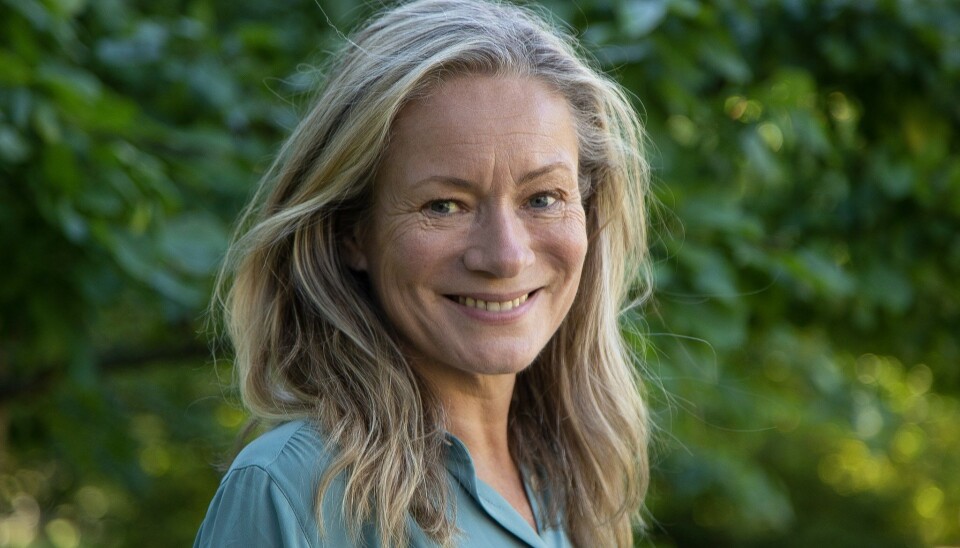
Most people last one minute
Ingrid Eftedal has researched freedivers.
These are people who dive underwater without a supply of air.
Eftedal finds the record is impressive.
"I think it will be very hard to beat," she says.
Most ordinary people can usually only hold their breath for about one minute.
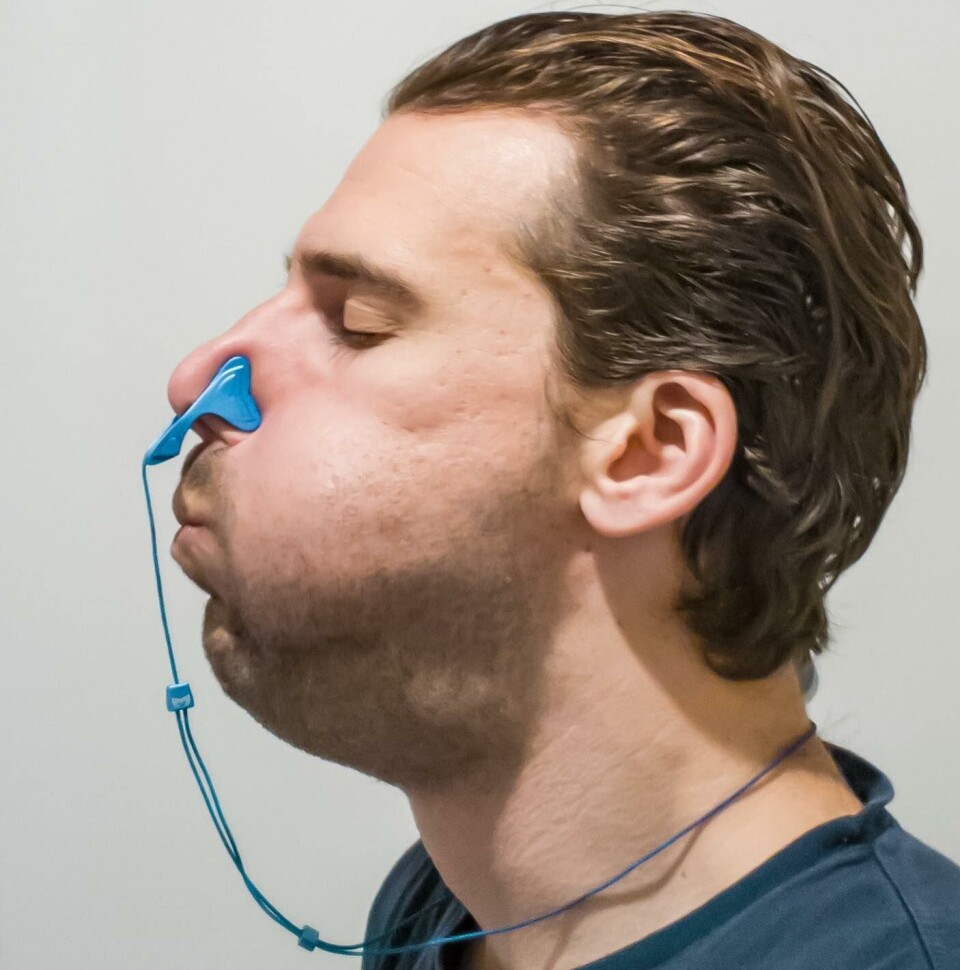
Before entering the pool, Maričić breathed pure oxygen.
"How did that help?"
"Every cell in the body depend on oxygen," says Eftedal.
We get it through the air we breathe into our lungs.
"Normal air only contains about 21 per cent oxygen," she says.
By breathing pure oxygen before the record attempt, Maričić increased the oxygen levels in his blood and body.
"That gave his cells an extra oxygen reserve," she says.
"If an ordinary person did the same, how much longer could they last?"
"Maybe a little longer," she says.
But for most of us, it still wouldn't be enough.
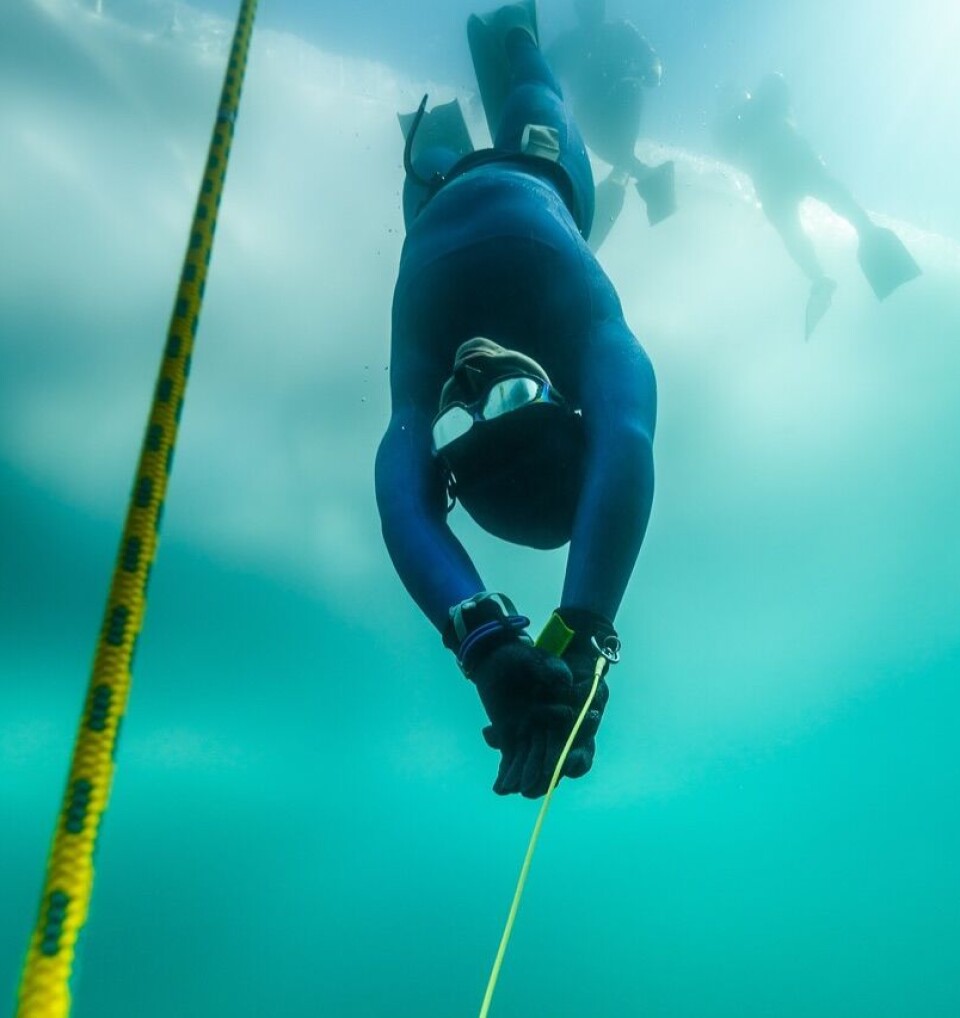
Breathing works like a switch
The reason for this is our breathing reflex. It forces itself on like an automatic switch.
"We don’t have to think about when to breathe. The body manages it on its own," says Eftedal.
The reflex is triggered when carbon dioxide builds up in the blood, something that happens when we hold our breath.
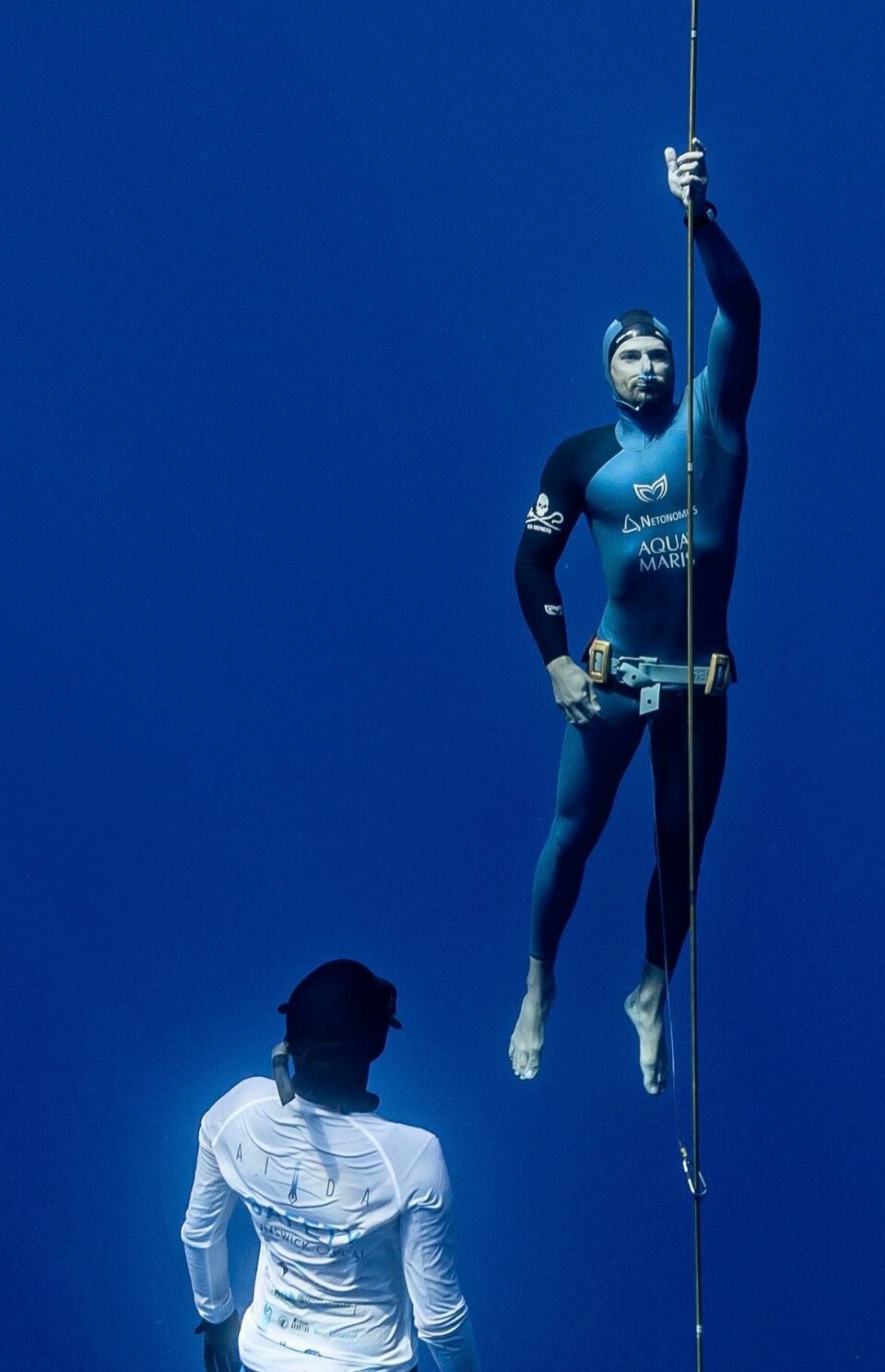
"Freedivers train themselves to suppress that reflex," she says.
Many also meditate.
This lowers the heart rate and reduces the body's need for oxygen.
Felt like being poisoned
Maričić's body endured extreme strain in the pool.
"The high level of CO2 in the blood and tissue is extreme. It felt almost like being poisoned," he says.
He suffered from a severe headache and extreme fatigue.
"I actually bled from my intestine afterwards. My body felt wrecked," he says.
Fortunately, it recovered quickly.
To know when it’s time to surface, he listens closely to both body and mind.
"What did you think about during those nearly 30 minutes?"
"Preferably I think about nothing, in complete silence," he says.
Because once you start using your brain too much, it starts using up energy and oxygen.
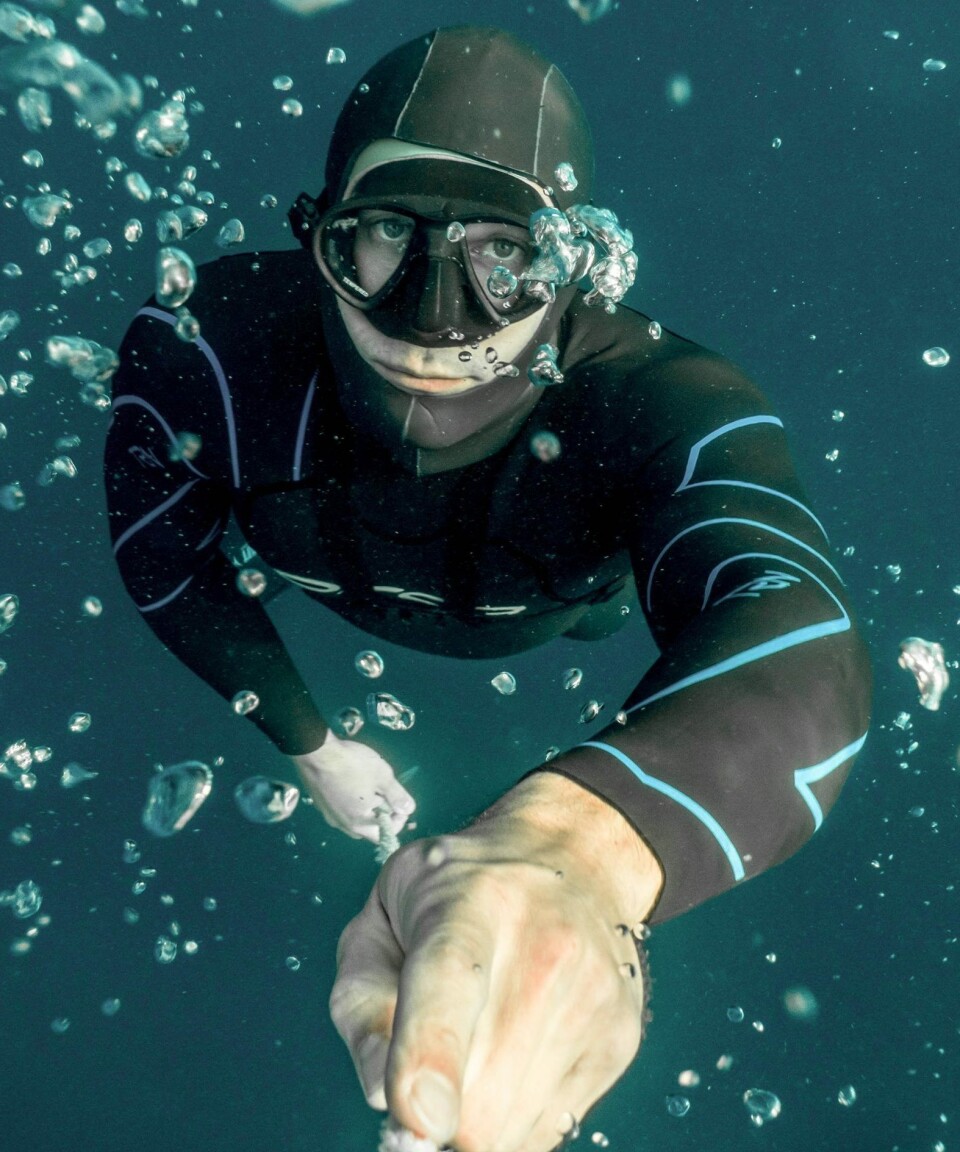
The spleen: An extra oxygen tank
Our body has an organ that can help us underwater: the spleen.
Most viewed
"Freedivers often call it an extra diving tank," says Eftedal.
Shaped like a bean, the spleen sits on the left side under the ribs.
When you hold your breath, it can release red blood cells – and give the body extra oxygen.
"For some people, freediving is part of their everyday life," says Eftedal.
This applies to the Bajau people in Indonesia.
"They have developed larger spleens," she says.
This gives them a natural boost of red blood cells and allows them to stay underwater much longer.
"So why don't they hold the world record?"
"A competitive freediver with a large spleen, like someone from the Bajau, would have a natural advantage," says Eftedal.
But the Bajau people dive mainly for food.
"They don’t always have access to extra oxygen, and they don’t spend time resting or treating health problems," she says.
Finding food underwater requires multiple dives.
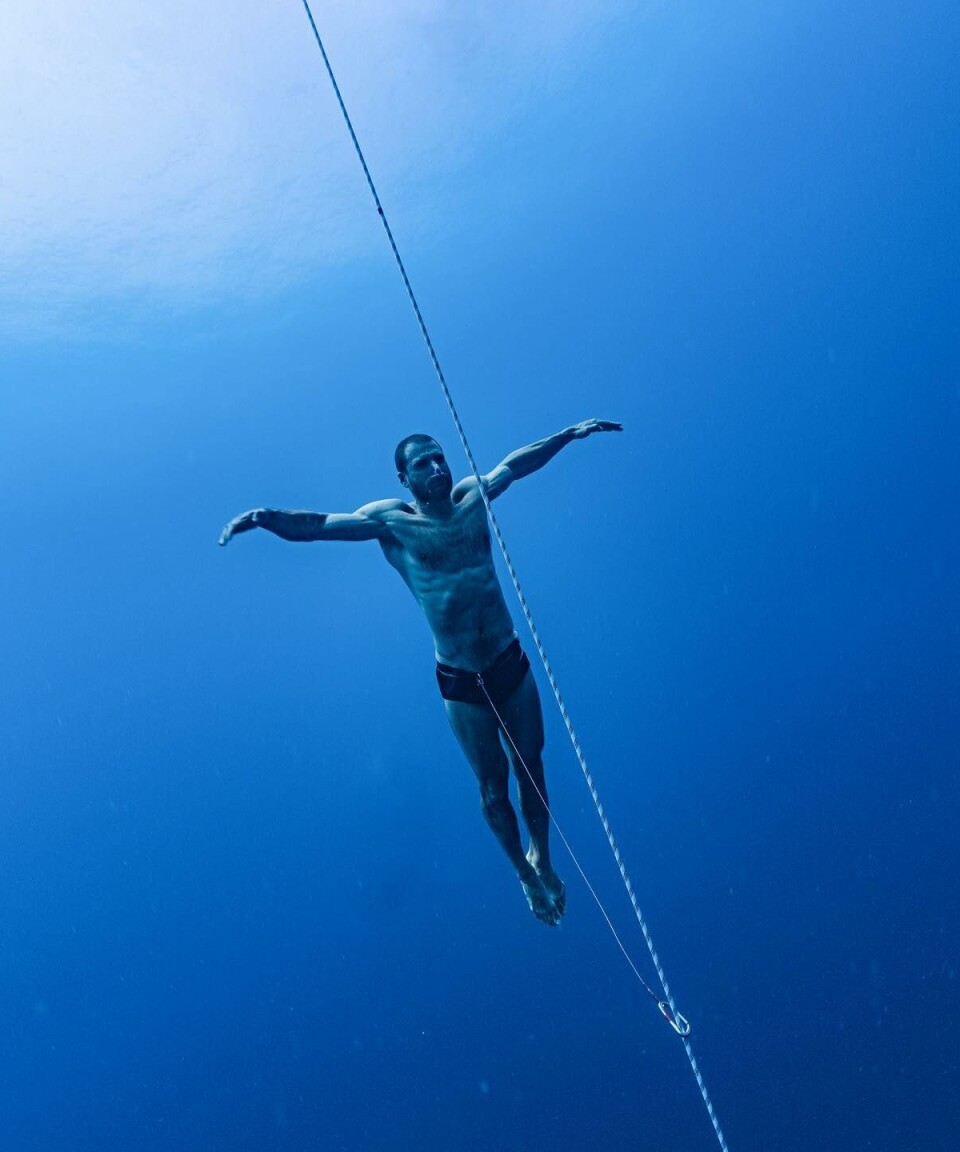
A window into the human body
Eftedal says that the Bajau people and freedivers can give researchers unique insights into the human body.
"Especially about how flexible it is," she says.
The freediver agrees.
He thinks it's cool that we humans share some of the same adaptations to diving as whales and dolphins.
"They aren’t as strong in us as in them, but the ability is there in all of us," he says.
———
Translated by Alette Bjordal Gjellesvik
Read the Norwegian version of this article on ung.forskning.no
Related content:

Subscribe to our newsletter
The latest news from Science Norway, sent twice a week and completely free.


























































